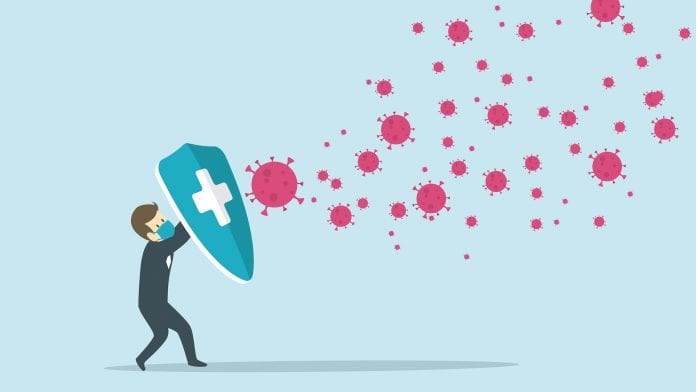
Immunity can last for up to six months following a COVID-19 infection, a new study has shown.
As part of a collaboration between the University of Oxford and Oxford University Hospitals (OUH) NHS Foundation Trust, the study suggests that people who have had COVID-19 are highly unlikely to contract the illness again for at least six months.
Knowledge of immunity following a COVID-19 infection has been limited. This study, which is part of a major ongoing staff testing programme supported by NHIR Oxford Biomedical Research Centre and Public Health England, looked at a 30-week period with 12,180 healthcare workers at OUH.
Dr Katie Jeffery, Director of Infection Prevention and Control for Oxford University Hospitals, said: “This is an exciting finding, indicating that infection with the virus provides at least short-term protection from re-infection – this news comes in the same month as other encouraging news about COVID vaccines. I would like to thank all our staff who have shown great commitment in attending our clinics for a repeated swab and antibody testing in order to keep our patients and each other safe.”
Understanding immunity
The workers at the hospitals were tested for antibodies to the COVID-19 virus to see who had previously contracted it and were tested regularly for the infection when they became unwell with symptoms and as part of regular testing. The researchers followed whether staff who had been infected before had the same number of new COVID-19 infections as those who had not been infected before.
The findings of the study showed that 89 of 11,052 staff without antibodies developed a new infection with symptoms. None of the 1,246 staff with antibodies developed a symptomatic infection. Staff with antibodies were also less likely to test positive for COVID-19 without symptoms – 76 staff without antibodies tested positive compared to just three with antibodies. The three healthcare workers with antibodies who tested positive for the virus that causes COVID-19 were all well and did not develop symptoms of COVID-19 again.
These findings suggests that the majority of people are unlikely to get COVID-19 again if they have already had it in the previous six months, and that healthcare workers who did not have antibodies against COVID-19 were more likely to develop the infection.
One of the authors on the paper, Professor David Eyre of the University of Oxford’s Nuffield Department of Population Health, said: “This ongoing study involving a large cohort of healthcare workers has shown that being infected with COVID-19 does offer protection against re-infection for most people for at least six months – we found no new symptomatic infections in any of the participants who had tested positive for antibodies, while 89 of those who had tested negative did contract the virus. This is really good news, because we can be confident that, at least in the short term, most people who get COVID-19 won’t get it again.
“We know from a previous study that antibody levels fall over time, but this latest study shows that there is some immunity in those who have been infected. We will continue to follow this cohort of staff carefully to see how long protection lasts and whether previous infection affects the severity of infection if people do get infected again.”
While this is an important step in understanding how COVID-19 immunity may work, it is not enough data at the moment to make a judgement on longer-term protection (beyond six months from the initial infection). The study will continue to collect data, with the goal of verifying how long protection from re-infection might last.























I believe your follow up studies are providing valuable information for the future outlook and hope you will be doing similar studies post vaccination. Unfortunately your follow up seems to be limited to a health care provider cohort and doesn’t address the situation in older persons or other higher risk groups. I would hope that those follow up studies are also being done.